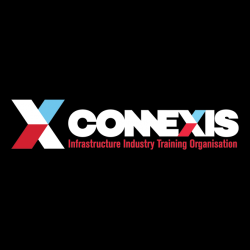
A collaborative approach to mentoring: A model for Industry Training Organisations and employers
Status
Completed: 18 October 2016
Project Details
An 18-month action-research project that trialled employer-led, collaborative mentoring for nearly 100 Downer New Zealand apprentices in the workplace. A collaboration between Downer New Zealand (as the the employer) and Connexis and the Primary ITO (as the two Industry Training Organisations).
Aims:
The primary aim of the research project was to identify ways an employer and Industry Training Organisations (ITOs) could work more effectively together to mentor workplace apprentices and help apprentices stay in work and complete training.
Methodology:
The methodology of the research project featured:
- five key research questions to answer by the end of the project
- an action-research approach, featuring ongoing learning, reflection, and feedback throughout the project
- outcome-focused evaluation, involving the collection of clear evidence showing the project's results.
Team

Sue Beckett
Project Implementation Lead to April 2015
Downer New Zealand
Lee Pennock
Project Implementation Lead from April 2015
Downer New ZealandSandy Johnson
Research Lead
Peninsula People Ltd
Ian Jennings
Downer New Zealand
Peter Sleeman
Downer New Zealand
Robbie Paul
Industry Training Organisation (ITO) representative
Connexis
Michael Styles
Industry Training Organisation (ITO) representative
Primary ITODr Chris Holland
Research Mentor
Work & Education Research & Development ServicesStatus
Funding
$339,901.00 (excl GST)
Key Findings
Findings related to mentors and field workers
- Joint apprentice mentoring by Downer New Zealand, Connexis and the Primary ITO had never been done before.
- Downer New Zealand mentors and ITO field workers understood mentoring and their respective roles much better following the project.
- Mentors and field workers became more aware of the changing needs of apprentices throughout the project.
- Mentors and field workers became more aware of the mentoring tools available, but differed in how valuable they found the tools overall.
- Mentors and field workers had mixed views on the value of the relationships they shared throughout the project and agreed they needed more support to consistently improve the quality of their interaction overall.
Findings related to apprentices
- Apprentices involved in the mentoring project were significantly more likely to stay in work than those who weren't involved in collaborative mentoring.
- Project apprentices were more likely to stay on track or complete their qualifications than non-project apprentices.
- They were also more likely to stay engaged in their course of study and complete their qualifications within the required timeframe.
- Overall, apprentices involved in the project achieved, on average, a significantly higher number of credits than those who weren't involved.
- Collaborative mentoring resulted in an estimated annual savings of more than $60,000 to Downer New Zealand, resulting from fewer apprentices dropping out or not completing their studies and staff turnover.
Key Recommendations
Recommendations for Downer New Zealand
- Early information for mentors | Ensure all new mentors read the project's mentor guide and watch the mentoring video.
- Better induction for apprentices | Formally introduce mentoring to new apprentices, then give them ongoing monitoring and support.
- Give more opportunities to work together | Get mentors and ITO field representatives to help introduce mentoring to new apprentices.
- Improve the selection process | Allow apprentices to select their mentors and discourage the use of managers as mentors.
- Be clear on roles early | Clarify the mentor's role in initiating and managing their relationship with apprentices early in the process, ie, during training.
- Reach out to ITOs | Involve the relevant ITOs in apprenticeship mentoring and keep them fully updated on what is involved.
- Raise awareness of successful mentoring | Consider introducing initiatives such as an annual Mentor of the Year Award; sharing stories of successful mentoring practice; and championing mentoring at senior management level.
- Improve support to mentors | Think about ways to make it easier for mentors to better balance mentoring with work commitments.
- Raise awareness of mentoring | Make staff more aware of mentoring opportunities within Downer New Zealand and give them a way to become mentors.
- Talk about the benefits of mentoring | Highlight what is in it for staff, eg, helping apprentices to complete their qualifications; sharing skills and giving back to the business or industry; linking to the Downer New Zealand leadership programme.
Recommendations for Industry Training Organisations (ITOs)
- Be clear on roles early | Clearly define the ITO field representative mentoring role early, particularly as it relates helping apprentices learn and complete qualifications.
- Build new relationships | Encourage ITO field representatives to develop strong relationships with mentors by participating in introduction to mentoring training and workshops and by regularly meeting face-to-face and sharing contact details.
- Add value to mentoring | Offer and be consistent in the literacy and numeracy support offered to apprentices engaged in mentoring.
- Get more field representatives involved | Raise awareness of mentoring opportunities for ITO field representatives and encourage more to get involved.
The final report for this project which covers the background, methodology, results and recommendations from this research.
- 18 October 2016
A downloadable workbook for planning and recording mentoring sessions. By keeping good records, you have good information to build on throughout the mentoring relationship.
- 18 October 2016
This guide to mentoring aims to address many of the questions mentors may have around understanding what’s involved, what the mentoring role is (and isn’t) as well as providing mentors with some tools and places to go to get more support.
- 18 October 2016
A printable question wheel for mentors to challenge mentees to question themselves.
- 18 October 2016
A 10-minute video exploring Downer New Zealand's experience of mentoring apprentices by Ako Aotearoa.
- 10 October 2015